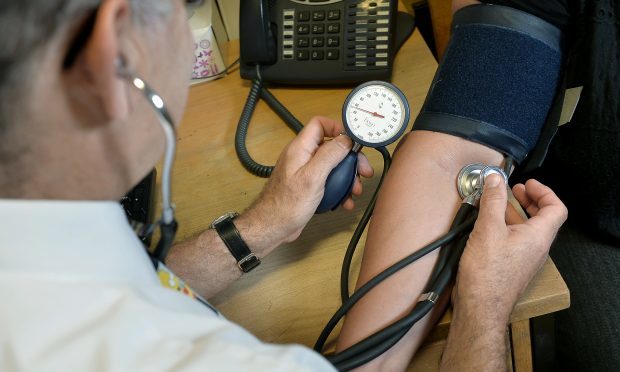Health practices in the region are short of dozens of GPs as the full-time workforce shrinks despite rising patient demand.
There are 19 fewer family doctors working a full week in Fife than there were eight years ago, while Tayside has just one extra, according to an official survey of surgeries.
It means more than a third (37%) of Fife surgeries and about one in five (21%) in Tayside do not have enough GPs, compared with a quarter nationally.
The SNP administration has faced a barrage of criticism from health leaders and opposition parties for failing to prevent the shortages.
Ministers say they are committed to increasing the number of GPs by 800 over the next decade.
The Royal College of General Practice in Scotland said it has been warning the GP workforce is in crisis for years and the figures are “very concerning”.
Calling for immediate action, chairman Dr Carey Lunan said: “Many practices across the country are already at tipping point.
“Growing the GP workforce is crucial to ensure there are enough highly-trained medical generalists to provide the community-based, patient-centred care that has provided the backbone of the NHS for decades.”
Across Courier Country, there are at least 35 vacancies for family doctors, according to the Scottish Government data published on Tuesday.
The shortages are at risk of getting worse because of an ageing workforce, with 36% of family doctors and 55% of nurses in general practice now aged over 50.
Nationally, the number of whole-time equivalent GPs has declined from 3,735 in 2013 to 3,575 in 2017. Surgeries have relied on locums to plug gaps.
Alistair Montgomery, a former Dundee GP, said pay is an issue. “GPs’ salaries are generally significantly lower than south of the border and on top of that they are also paying more in tax,” he said.
Alex Rowley, the Labour MSP and former leader of Fife Council, said: “NHS Fife need to set out what they are doing to try and recruit GPs into Fife as well as demonstrating that they have an understanding of future need.”
Scottish Conservative shadow health secretary Miles Briggs added: “The SNP should have seen this coming, but instead sat on its hands and let this crisis unfold.”
Dr Frances Elliot, NHS Fife’s medical director, said the area is “experiencing challenges in recruiting to some
GP vacancies” as part of a national
trend.
“Within our role with the Fife Health and Social Care Partnership we are working closely with GPs to support practices in maintaining and improving patient care.
“For example, the formation of GP clusters is a forward thinking initiative that brings together GPs from across Fife to consider the challenges faced by general practice and find the best possible solutions for patients.”
Health Secretary Shona Robison said the primary workforce is at a record high, with large increases in nurse and physiotherapist numbers.
“The new GP contract, backed by investment of £110m, will ensure GPs can spend more time with the patients who need them most and make general practice an even more attractive career,” she added.
“And our commitment to increase the number of GPs by 800 over the next decade will ensure a sustainable service that meets increasing demand.”
